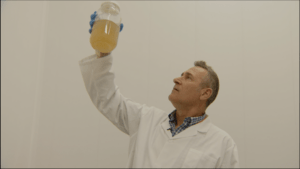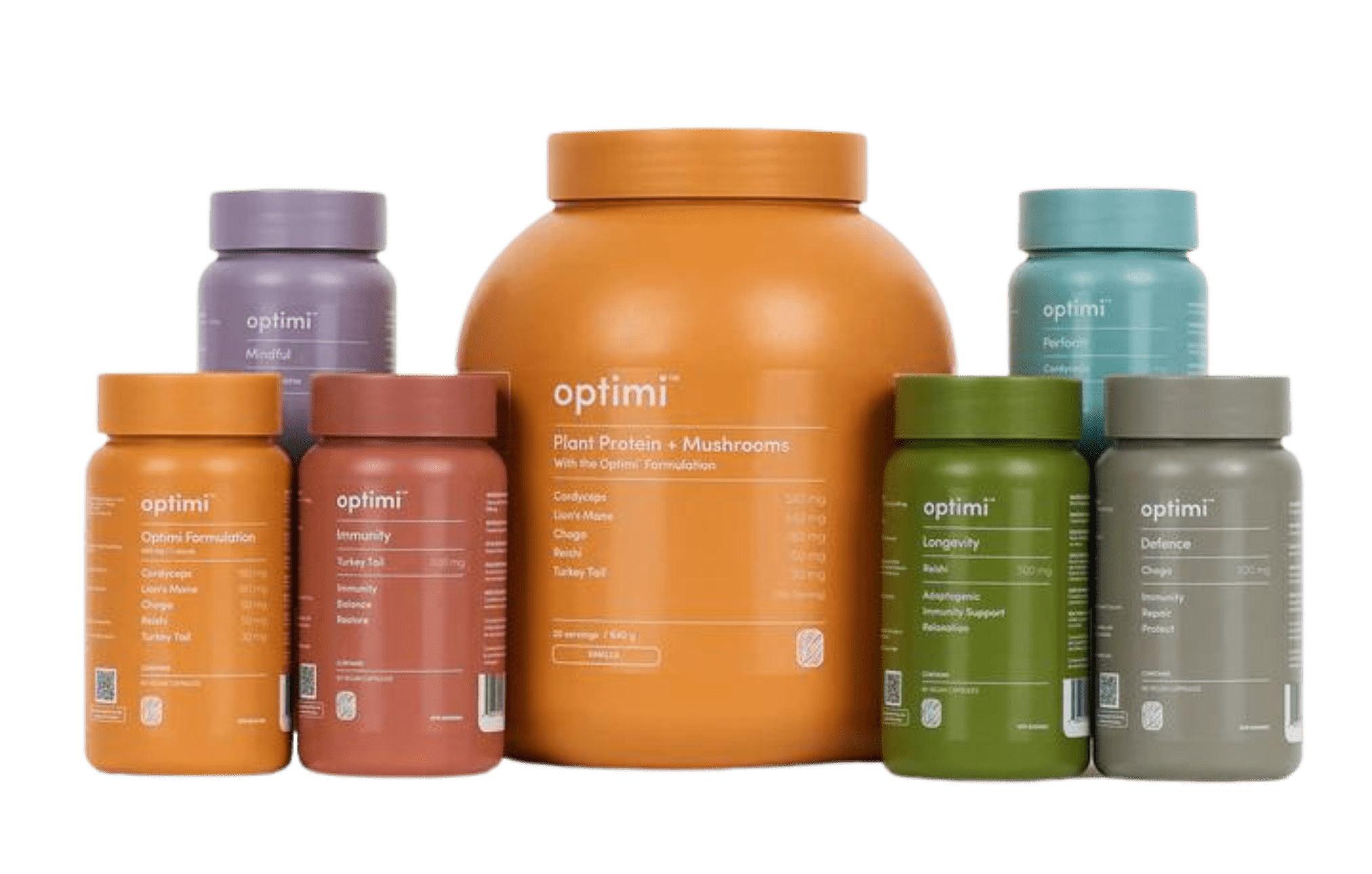Optimi Health set to produce 2,000 kilograms of dried psilocybin mushrooms a month in its Princeton facilities
Brady Strachan · CBC News ·

B.C.-based company Optimi Health has harvested its first cultivation of psilocybin mushrooms at its Health Canada-licensed facilities in Princeton, B.C., positioning itself as a major player in the burgeoning psychedelic sector.
The $14-million venture consists of two 10,000-square-feet facilities with a combined total of 10 growing rooms that can produce approximately 2,000 kilograms of dried psilocybin mushrooms a month, according to Optimi’s head cultivator, Todd Henderson.
“[It’s] a phenomenal scale … There is nobody else in the world doing what [we’re] doing here right now,” Henderson said.
“Thousands of years ago the Chinese and the Indigenous people were using these in solving all kinds of issues on their own and here it is thousands of years later, we are reverting back to it.”
Psilocybin mushrooms, commonly called magic mushrooms, are a controlled substance in Canada, making it illegal to grow, possess or sell unless authorized by Health Canada.
‘Astounding to see what the research is showing’
This month the agency granted Optimi a licence to produce the mushrooms as well as a research exemption to extract the psychedelic components of psilocybin and psilocin for use in clinical trials, according to the company.
Optimi says their facilities are built to meet Good Manufacturing Practice (GMP) requirements, a quality assurance standard required by Health Canada to produce psilocybin for clinical research.
“We are the only GMP organic facility in the world that can supply what we do. We have contacts all over the world for people who would like to do research with psilocybin,” said Leigh Grant, director of operations for Optimi Health.
The idea to build the facility came out of a desire to explore the medicinal benefits of natural products, said Bryan Safarik, chief operating officer.
“It really is astounding to see what the research is showing as far as medicinal benefits [of psilocybin mushrooms] and where this could all go,” Safarik said.
Canadian entrepreneur Chip Wilson, who founded Lululemon, is an advisory to the company and his son, J.J. Wilson is Optimi’s board chair.
The company is also growing non-regulated varieties of fungi including lion’s mane and chaga mushrooms, which are commonly found in health food stores.
Therapeutic benefits
The main product remains psychedelic mushrooms, of which Optimi hopes to position itself as major supplier on the global market for medical grade psilocybin.
In recent years, scientists have been studying the therapeutic benefits of psychedelic mushrooms to treat everything from addiction to easing end-of-life anxiety for terminally ill patients.
University of British Columbia psychology professor Zach Walsh has researched psilocybin for the past decade, including a recent study on microdosing the compound where people took repeated small dosages of mushrooms to treat depression and anxiety.
“There’s some growing evidence that psilocybin can help resolve treatment-resistant depression in a way that’s as effective or perhaps more effective even than traditional anti-depressants,” Walsh said.
“People have mystical experiences on psilocybin … Depression can be a loss of meaning in life and a loss of sense of purpose and so having those kind of profound experiences can really revitalize folks.”
In January, Health Canada restored aspects of its “Special Access Program” — which had been significantly amended under former prime minister Stephen Harper in 2013 — allowing physicians to request access to restricted drugs like psilocybin to treat patients with mental health conditions such as post-traumatic stress disorder, depression and anxiety.
Source: CBC British Columbia



